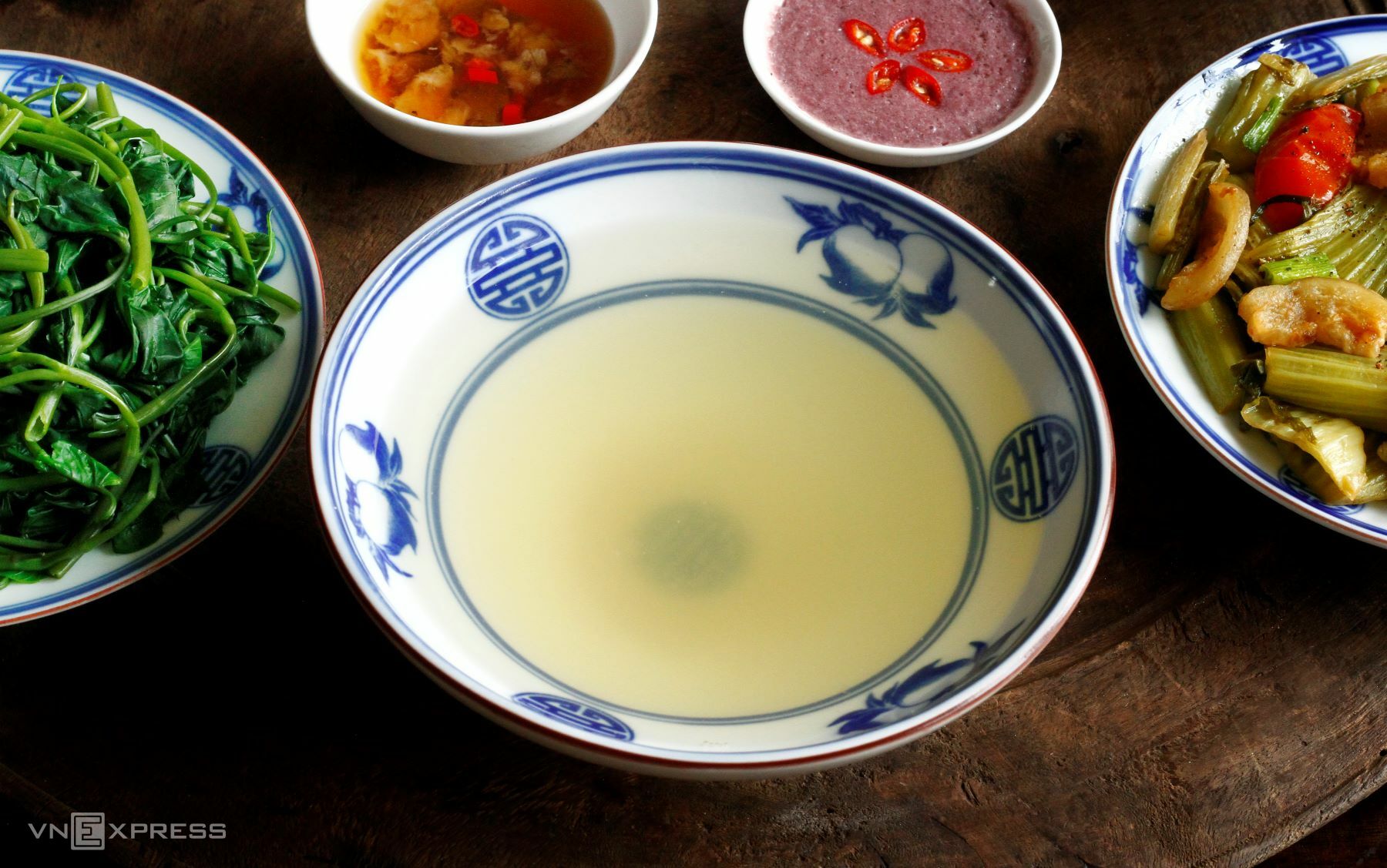Traditionally, vegetable cooking water is considered a simple, refreshing broth, especially on hot days. Adding lemon, fermented rice water, or Vietnamese tamarind creates a clear color, reduces odor, and inhibits microbial growth.
 |
Water from boiled water spinach with Vietnamese tamarind. Photo: Bui Thuy |
Nutritionally, this water contains water-soluble compounds released from the vegetables during cooking. Key components include water-soluble vitamins, particularly B vitamins and vitamin C. Studies show that after just a few minutes of boiling, vegetables can lose 30-50% of their vitamin C, much of which dissolves into the water. This explains the slightly acidic taste. However, vitamin C is sensitive to heat, light, and oxygen. If the water is left to cool for too long or reboiled, the vitamin content diminishes. Therefore, it's best used immediately.
In addition to vitamins, minerals like potassium, calcium, and magnesium also leach into the water. This makes the water a natural electrolyte drink. Even a small bowl of water spinach cooking water can provide a significant amount of potassium, helping to replenish electrolytes and regulate the body after sweating.
The water also contains antioxidants and compounds that contribute to color, flavor, and health benefits. Boiled mustard greens release glucosinolates, slightly pungent compounds that are precursors to isothiocyanates, which studies suggest may help prevent cancer.
Sweet potatoes, rich in polyphenols, turn a dull brown when heated, but these polyphenols have strong biological activity, acting as antioxidants and helping regulate blood sugar. Amaranth produces a purplish-red water due to its high betacyanin content, a pigment with antioxidant and anti-inflammatory properties. Broccoli, especially green broccoli, is rich in glucosinolates, and its cooking water is concentrated with minerals like potassium and magnesium, giving it a characteristic sweetness.
However, vegetables from unknown sources may contain chemical fertilizers that accumulate nitrates. During boiling, nitrates dissolve into the water. Improper storage or microbial activity can convert nitrates into nitrites, which are linked to an increased risk of cancer. This is why many people avoid using vegetable cooking water.
Nutrition experts recommend using cooking water from thoroughly washed, clean vegetables with known origins, and consuming it immediately after boiling. Avoid storing it overnight or reboiling it multiple times.
Bui Thuy












